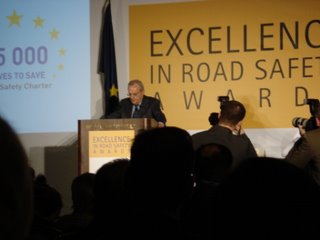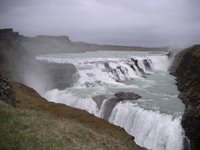
Have the lucky breaks….
I was in Brussels yesterday on the Excellence in Road Safety Awards Ceremony. It started a little funny with approximately 100 persons waiting for the Vice-President Jacques Barrot, who was half an hour late by any reason. There were 19 new signatories of the Charter, all companies or organisations. There were companies as IKEA, Toyota Europe, Pfizer etc making commitments for Road Safety and some of them also for the environment. Karlstad was nominated for an Award in the category cities/regions but the prize was taken by the London Borough of Sutton. Congratulations to them. You may think it just another event, but it’s good to pay attention to the important task and the job being done, although we didn’t win any prize this time.
When I travelled home I started to read Mark Lynas book about the climate changes, quite interesting, I will come back with comments to his book sometime. When the train arrived to the neighbour city to Karlstad we were transferred to bus. The reason was that a goods wagon with hydrochloric acid had a leakage in the rail yard in Karlstad and the yard was roped-off. I called the head of the rescue operation and got some more detailed information. Luckily, this time it was a small leakage and it was possible to move the wagon without any trouble. But, it could have caused a major problem. Sometimes there are small differences between luck and unlucky.
Let’s hope we have the lucky breaks on our side with the climate changes.




